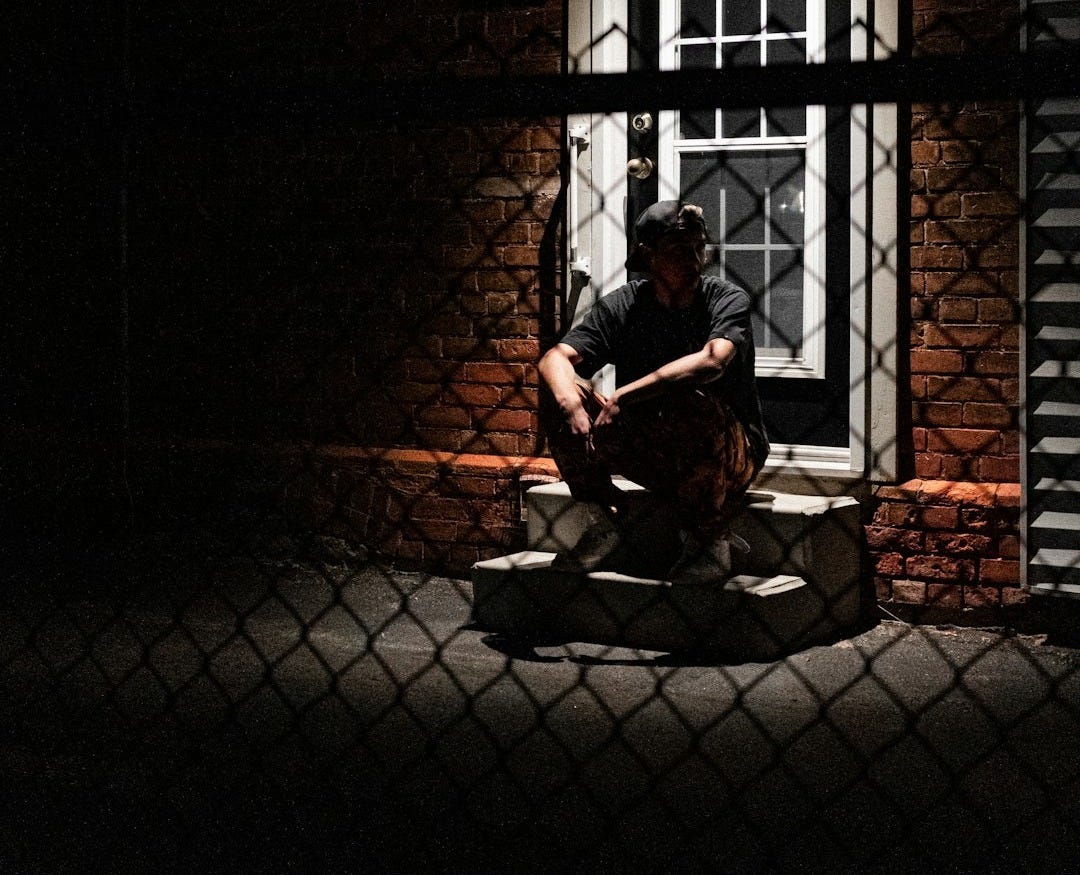
Around 24 years ago I had gotten into the horrible state of complacency that often led to me being hospitalized. In the occasion I am focusing on in the accompanying podcast, what had happened was that I had lowered a critical medication—a mood stabilizer named Depekane that I needed to regulate my moods. I had a friend who lived with a diagnosis of schizophrenia and he seemed to function really well. He told me that he saves up his pills and only takes them when he notices himself go off the deep end. I looked at my meds, knowing I was extremely tired at times, sleeping too much, not feeling motivated (all symptoms of schizophrenia) then I decided I could lower my depekane. I became very ill and caused all kinds of embarrassing problems that I can’t get out of my head (believe me, it is not a blessing but a curse to have a photographic memory). Then I was hospitalized, and probably because I was so angry and disagreeable about my hospitalization, I was frequently being punished with isolation and my doctor had told my mom that he expected me to be there for at least 2 years. Fortunately I was eventually put back onto the depekane, which had always worked at the proper dose, and was discharged in 6 months. It is important to note these were without a doubt the worst 6 months of my life.
I couldn’t stand that no one trusted me. If they had just spoken to me and found out what led up to my hospitalization, I could have improved much faster and not have to have gone through much. But unfortunately my doctor was an incompetent and petty man and did all he could to not only keep me there, but to avoid any contact with me at all costs, including the office visits he should have allowed me. I had even told him I didn’t want him as a doctor and wanted someone else and he simply ignored my request.

All that is in the past though. I think there are many things though that people can learn from. One of them is that a person needs to come to understand when they are well and when they aren’t and need help. Perhaps they also need to come to understand that help is out there, help is mostly non-judgemental. And most of it, therapy, activities, recreation, occupational therapy and even classes in life skills or other things do help, even if they just distract you long enough for your medications to kick in. The funny thing is, you also have to be prepared to spend a long time getting your illness under control. Sometimes you can go on medications and in the end they don’t work. There are last resort medications like clozapine, which I keep hearing is extremely effective, but not to be trifled with. When the last resort medication helps and you decide to go off of it when you are still ill, it may not work when you get back on it and then all of a sudden you are out of options.

When I try to think of learning from my 6-month visit, it is difficult. But I do have to admit life got much better when the time in the hospital was over and I went through healing. A fact that comes up a lot is that it can take as much as 10 or even 15 years to properly diagnose schizophrenia. I think it took at least that for me, and no doctor or counsellor or nurse ever told me what my diagnosis was. I was properly treated for it, but given no ability to self advocate, to learn about my illness, or to find out what things to avoid because of it. It was made clear to me that I had to stay off alcohol, and I was able to for a few chunks of time, but booze is so ingrained in our society that was difficult. Growing up everyone considered drinking to be the solution to every type of boredom, depression, or feelings of inadequacy. I grew up thinking that not only everyone must drink alcohol, but that everyone drank to excess, and that this was a good thing. It was years until I came to understand the terrible toll alcohol has on a person’s mind and body. At one point, my dad, who was a raging drunk for many years, was able to quit drinking but his anger didn’t go away. I talked to a psychologist about it and he said that when a person abuses alcohol for as long as my dad had done, it actually causes brain damage in parts of the brain that control anger and other emotions. In the end though, after my mom passed and my dad grew older, he not only became a wonderful father, he became almost a best friend. I loved showing off my dad who was handsome, without grey hair, and walked for miles every day, not to mention being a snappy dresser.
Once again I rambled off topic. I had to quit drinking. So I went to AA for a full year, as many times as I could. But I learned I had to set some pretty firm boundaries. If I were to ever go back, I would be pretty reluctant to go to meetings as a place to make friends in or use as a place to meet a romantic partner. I would go there, read the book, listen to the stories, then go home and pick up a good book to read. Learn from it but don’t buy into any one person’s story. Everyone is flawed, but sadly especially people desperate to fill a void that alcohol once filled.
Well, this was intended as a place to write a little more about psychosis and being in a psychiatric hospital. It can be a dirty, violent place. I tried to keep to myself, but still I had clashes. There were fistfights with patients, times where six nurses held me down and pulled down my pants to give an injection they had to painfully pierce my butt six times to get it right when I would have fully consented to getting the injection. There were staff members who were psychopaths, I recall one asian nurse who was, and a male ward aide who was a piece of garbage who was likely also a psychopath. I think people like that are draw to work as overseers of vulnerable people. As far as a solution for it, I just don’t know. My brother was in the same hospital for a while and had problems, and my dad told him to tell the staff. He was very reluctant, but when he did—on one occasion because of a patient who kept threatening him—it was dealt with and there were no more concerns after that.
In closing I just wanted to say that the most important thing someone with a mental illness needs is a person to help advocate for them. One person, preferably a mentally healthy, financially secure person. At this point I should give a shout-out to my friend the amazing author of “The Ghost Garden” and “Monday Rent Boy” Susan Doherty. Susan, out of charity and kindness, spent years visiting people with schizophrenia in the Douglas hospital in Montreal. There was one woman who had a long and difficult story to be told, and Susan showed such kindness and compassion for this person when almost no one else in the world would. At this point, I should put in a quick plug for a foundation I volunteer for as well, CureSZ. It is an incredible foundation that helps people with schizophrenia and their families find relief and treatment. Bethany, the president of the organization, has set up a thing called a mentorship program where caregivers are matched with caregivers with a great deal of experience supporting someone with a mental health disability. Consider visiting their site or reading Susan’s book and if you feel this blog and podcast have benefitted you, consider a membership for just $8 a month.











